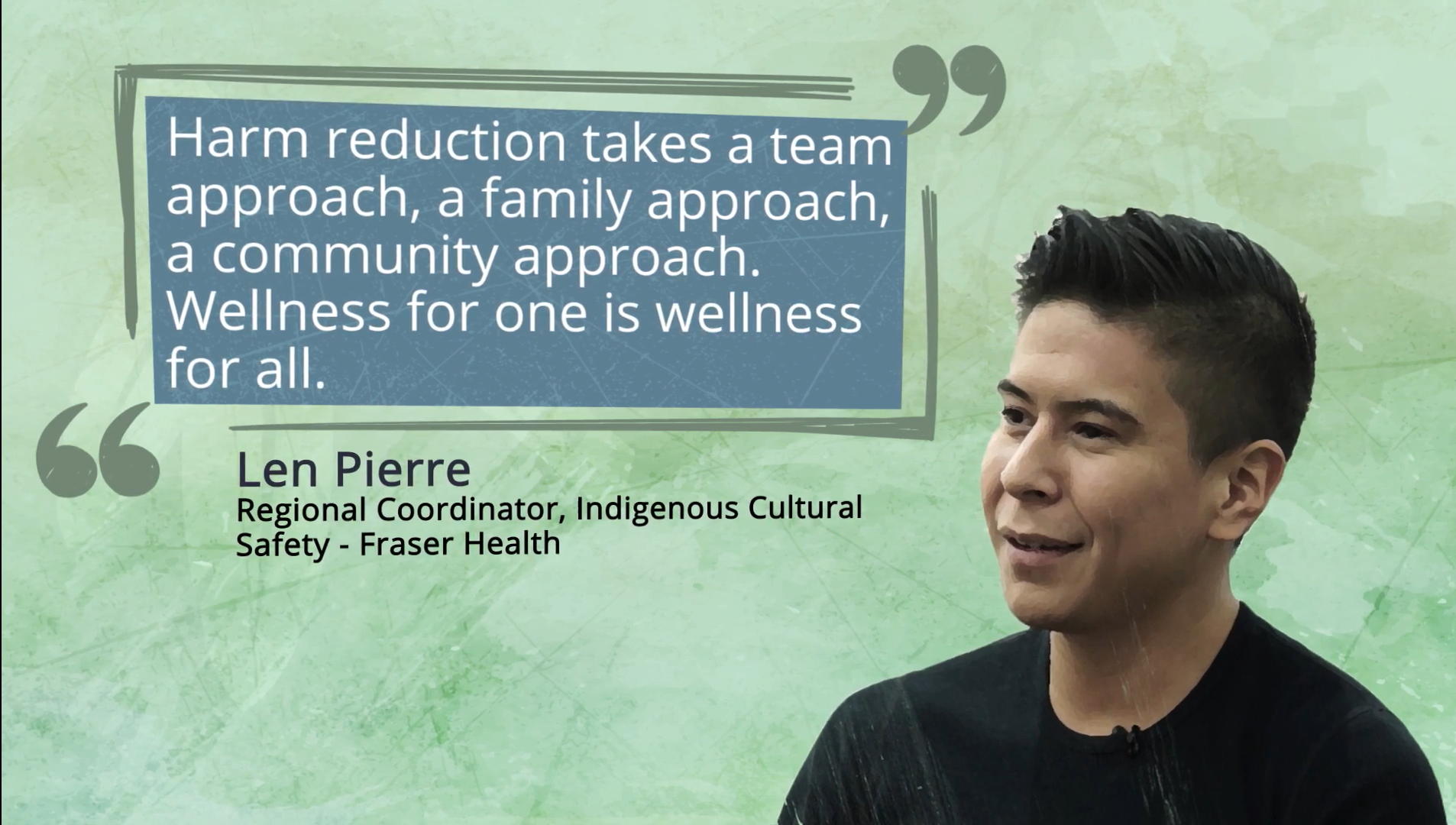
FNHA Harm Reduction Hub
The Harm Reduction Hub provides community workers and healthcare providers with easy access to harm reduction education and supplies, including bulk supply of nasal naloxone.
The Hub also helps build connections with FNHA's regional teams and other harm reduction supports to help expand harm reduction options in First Nation communities. You can access the Harm Reduction Hub by emailing
harmreduction@fnha.ca. Learn more about the Harm Reduction Hub in this two-page infosheet
here (PDF).
FNHA Toxic Drug Emergency Community Support Guide
Toxic Drug Emergency Community Support Guide - This regularly updated guide provides supports for communities across the spectrum of harm reduction services offered by the FNHA as well as other health partners and organizations.
Addiction Medicine Clinician Support Line
The 24/7 Addiction Medicine Clinician Support Line is a service provided by the BC Centre on Substance Use and is staffed by addiction medicine specialists from across British Columbia (BC). When you call, the specialists can answer your questions about the treatment and care of people who use substances.
This service is available to all frontline staff who are caring for individuals with existing or past substance use disorders. Call 778-945-7619 24 hours per day, seven days per week. Learn more about the Support line in this one-page infosheet
here (PDF).
All Paths Lead to Wellness
All Paths Lead to Wellness Conversation-Starter – A detailed image that reflects the wide spectrum of programs and services that are available for people who use substances (Two-page FNHA info sheet).
Detox and Withdrawal
This five-page resource provides recommendations on steps to undergo detoxification from substances and the inherent risks of that journey. For individuals wanting to learn more about detox and withdrawal, a supporting loved one, or a health care worker.
Raven's Eye Sage Sites
Raven's Eye Sage Sites Service Delivery Framework – A 23-page guide for establishing and running an on-demand overdose prevention site for First Nations (PDF)
FNHA Nurse Prescribing
In 2020, Registered Nurses (RNs) and Registered Psychiatric Nurses (RPNs) in British Columbia (BC) received the authority to prescribe certain forms of opioid agonist therapy (OAT) to provide increased access to prescribers and to expand culturally safe care.
The FNHA Four Directions team can support the education pathway and training of nurses working in rural, remote and urban First Nations communities who are interested in becoming nurse prescribers.
FNHA Nurse Prescribing: A Community Conversation (YouTube video, Runtime: 83 minutes)
Take-Home Naloxone
Take Home Naloxone is a provincial program run through the BC Centre for Disease Control that aims to expand access to naloxone, the opioid overdose reversal drug that prevents overdose death.
Naloxone is available in BC without a prescription. Not-for-profit organizations can order Take Home Naloxone kits and provide them to people at risk of an opioid overdose, and people likely to witness and respond to an opioid overdose.
Register your community as a Take Home Naloxone site by contacting the Hub
harmreduction@fnha.ca.
Naloxone: Injectable vs. Nasal
Courageous Conversations Toolkit
The Courageous Conversations Toolkit was designed by staff members at the BCCSU and the FNHA, Elders, people with lived experience, and their family members, to prepare community members for conversations about substance use with their families, friends, and communities. It is intended for community health providers and leaders who wish to learn how to hold sacred spaces for dialogue and to lead their communities in Courageous Conversations.
Speaking honestly about drugs, getting help, and acknowledging the fear of dying from drug poisoning requires strength, knowledge, and skill. This tool kit was developed to support people and to normalize conversations about drug use so we can respond to the toxic-drug crisis in ways that convey understanding and work on solutions to save lives. This tool kit can be modified for any substance, not just opioids.
Healing Indigenous Hearts
The Healing Indigenous Hearts Facilitator's Guidebook provides a cultural framework and direction for facilitating a bereavement support group for people whose loved ones have died from substance-use-related causes.
The guidebook will help Healing Indigenous Hearts group facilitators to create safe spaces that will support members on their healing journeys. It will also help facilitators to understand and talk about the profoundly harmful impacts of intergenerational trauma and internalized stigma. Facilitators will be encouraged to share their individual culture, traditional ways of healing, language, knowledge, and experience – and to support group members to share and use theirs as well.
Healing Indigenous Hearts Facilitator's Guidebook
For more information, please email the Healing Indigenous Hearts team at CMO.HiH@fnha.ca.

